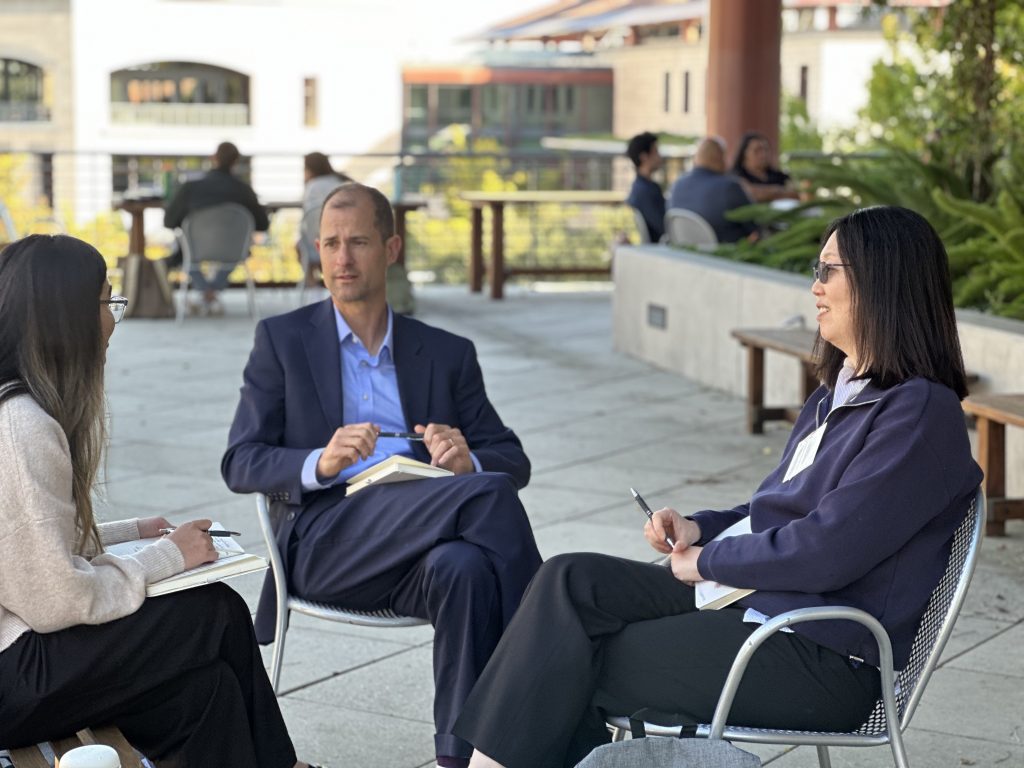PACS news / November 30, 2023
Making the Biggest Difference You Can
Perennial Principles of Effective Philanthropy

The Effective Philanthropy Learning Initiative (EPLI) is committed, above all, to supporting wise stewardship of resources. With the many human and environmental crises before us, the multiplicity of worthy causes to give to, and the sincere desire of many donors to do great good, there are a few core practices of effective grantmaking that our experience shows consistently improve impact:
- Listening to beneficiaries and grantees
- Reducing the burdens of the due diligence process
- Providing multi-year unrestricted, or general operating support
- Imposing reasonable monitoring and evaluation (M&E) requirements
- Being transparent and responsive
- Providing assistance beyond the grant
None of us want money wasted, and if these core practices don’t get implemented, more often than not we see misguided goals and strategies, misplaced efforts, low levels of trust, and a failure to capitalize on the collective insights and knowledge of stakeholders, whether front-line organizers, program directors, individual donors, community activists, or anyone else seeking change.
In addition to the core practices listed, effective philanthropy requires thoughtful direction—goals linked to specific strategies. These strategies and intermediary steps can and do change, in the real world, to accommodate circumstances. Social change, both great and small, requires adapting means to reach goals, and maintaining clarity on how lines of action are leading towards a north star.
What Do Donors Most Need?
We recognize that many donors look for support in knowing when, how, and to whom to give. In our work, we’ve found donors say they benefit from understanding the value of unrestricted giving, the systemic nature of social challenges, the ways research contributes to addressing these challenges, and the importance of hypothesizing as well as testing hypotheses for how to contribute to positive change.
In October and November, we ran our fifth Education for Philanthropy Professionals (EPP) program, a six-day, hybrid program for donors, their senior staff, family members, and primary advisors. The program began as a response to requests from major donors and foundation executives looking for something that they could refer colleagues to for a solid understanding of the field.
Feedback on our EPP program shows that participants—many of whom were practicing outside of the United States including Brazil, Colombia, Poland, Netherlands, Germany, China, India, Africa and more—valued the practical, the theoretical, and the inspirational aspects of the program. We dug into the components of a theory of change and systems mapping; we also heard from leaders in the field how listening to people’s stories shaped billion-dollar initiatives that improved communities and lives nationwide. We grappled with the big picture, too: the history of philanthropic movements, justifications (or not) for tax policies, and how we’ve arrived at a moment of diverse views about the purposes and optimal ways of engaging in charity and social investments.
Values, issues, and causes vary, but for everyone who participated, the program provided insights into both our current moment and how to make a bigger difference with their giving.
Anytime Access to Resources
To support donors, advisors, and others in the ecosystem, EPLI provides multiple, freely available resources on its website. We’ve recently added a new resource as an on-ramp to core practices: Learn Effective Philanthropy (LearnEP).
LearnEP is a self-directed, easy-to-navigate, free online education course that helps individual donors make more effective and informed philanthropic choices—and achieve the social impact they seek. Sponsored by Fidelity Charitable® Trustees’ Initiative1, LearnEP consists of 8 separate interactive modules that are:
- Freely accessible to anyone—individuals, families, professional advisors—who have an interest in elevating their charitable giving practice.
- Flexible and self-paced—so that donors can work through the course from beginning to end, or just go to a section that addresses your current needs and questions.
- Useful for teams—to support thoughtful conversations about charitable giving with family members and advisors and assist with strategic planning.
We share these resources through Creative Commons licensing, making them available to anyone interested in using or co-branding them.
Building for the Future
EPLI envisions a non-profit sector thriving because of grant-making practices that are respectful and strategic, grounded in trusting relationships and sharp tactics, and adaptable within cycles of testing approaches while clear on ultimate goals.
Donor education offerings have increased dramatically in the last decade or so, and, at the same time, so have many of the ways people talk about their giving. Despite rhetoric that can put people at odds, we believe that the intent to do good, to be of service, and to make a difference remains common. Our goal is to channel into resources, educational experiences, and grant-making those practices that will help donors make the biggest difference they can in finding solutions to the problems they want their giving to address.
As we close out 2023 and plan a new year of learning and giving in 2024, we share from our LearnEP course the kinds of questions donors might consider:
- What did I learn this year about my focus areas or achieving social impact in general?
- Did I listen to others, join any new peer groups, give to any new causes, involve new family members, increase my giving, or give in new ways?
- Have I been a humble, responsive partner to the visionary leaders hard at work on the issues we mutually care about? Have I effectively facilitated and supported their work and wisdom?
- Going forward, where might I stretch and learn? What might I do differently?
Onward to a 2024 of thoughtful, inclusive, innovative, inspired philanthropy!
1 The resources were completed with funding from the Fidelity Charitable® Trustees’ Initiative (FCTI), a grantmaking program separate from Fidelity Charitable’s donor-advised program. FCTI did not weigh in on the substance of the content provided, and the findings and conclusions contained within are those of the authors and do not reflect advice or official positions of FCTI.
